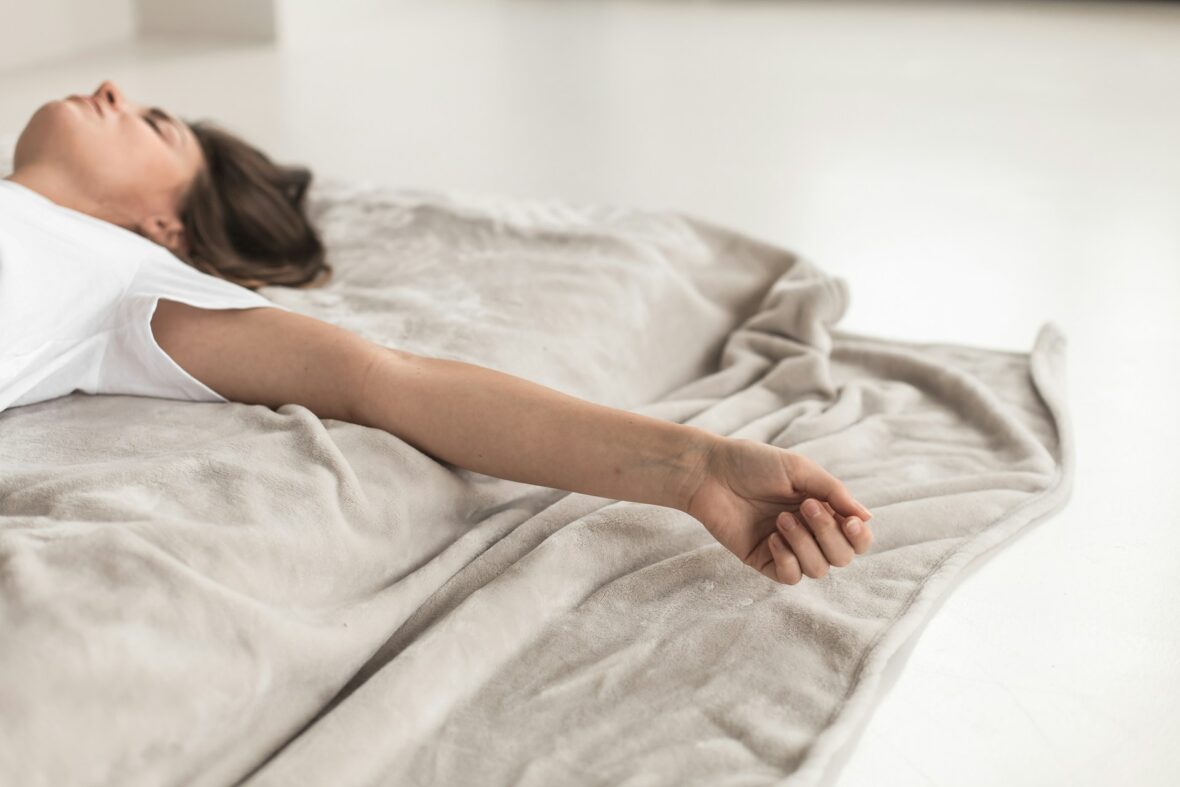Sleep affects every aspect of your life, from your immune system to your mood, productivity, and long-term health. Yet millions struggle with poor sleep quality, tossing and turning through restless nights or relying on pharmaceutical aids that can create dependency.
The good news? You can dramatically improve your sleep quality using natural methods that work with your body’s biological rhythms. These evidence-based strategies don’t require expensive supplements or medications—just simple adjustments to your daily routine and sleep environment.
This comprehensive approach to better sleep focuses on sustainable bedtime habits and natural remedies that address the root causes of sleep difficulties. By implementing these techniques, you’ll discover that quality rest is achievable without compromising your health or creating unwanted side effects.
Understanding Your Sleep Architecture
The Science Behind Sleep Cycles
Your body operates on a natural 24-hour rhythm called the circadian cycle, which regulates when you feel alert or drowsy. This internal clock responds to environmental cues, particularly light and darkness, to release hormones like melatonin that promote sleepiness.
Quality sleep involves cycling through multiple stages: light sleep, deep sleep, and REM (Rapid Eye Movement) sleep. Each stage serves a specific purpose, from physical recovery to memory consolidation. Disrupting these cycles leads to that groggy, unrested feeling even after spending eight hours in bed.
Common Sleep Disruptors
Modern life introduces numerous factors that interfere with natural sleep patterns. Blue light from screens suppresses melatonin production, while stress hormones like cortisol can keep your mind racing when it should be winding down. Understanding these disruptors helps you create targeted solutions.
Optimizing Your Sleep Environment
Creating the Perfect Sleep Sanctuary
Your bedroom environment plays a crucial role in sleep quality. The ideal sleep space maintains a temperature between 60-67°F, as your body naturally cools down to initiate sleep. Darkness signals your brain to produce melatonin, so invest in blackout curtains or an eye mask to eliminate light pollution.
Noise control matters just as much as light management. Even subtle sounds can fragment your sleep without fully waking you. Consider earplugs, a white noise machine, or a fan to mask disruptive sounds from traffic, neighbors, or household activities.
Bedroom Air Quality and Comfort
Poor air quality affects sleep more than most people realize. Stuffy, dry air can cause congestion and throat irritation that disrupts breathing patterns. Open windows when the weather permits, use an air purifier, or add a humidifier to maintain optimal humidity levels between 30-50%.
Your mattress and pillows directly impact physical comfort and spinal alignment. Replace pillows every 1-2 years and mattresses every 7-10 years. The “best” mattress varies by individual, but it should support your preferred sleep position while maintaining proper spine alignment.
Establishing Effective Bedtime Habits
The Power of Consistent Sleep Schedules
Your circadian rhythm thrives on consistency. Going to bed and waking up at the same time every day—including weekends—strengthens your internal clock and makes falling asleep easier over time. Even a 30-minute deviation can disrupt this delicate system.
Start by determining your ideal bedtime based on when you need to wake up, allowing for 7-9 hours of sleep. Work backward from your wake time and commit to this schedule for at least two weeks to see meaningful results.
Pre-Sleep Rituals That Work
Developing a relaxing bedtime routine signals your body that sleep time approaches. Begin this routine 30-60 minutes before your intended bedtime. Activities might include gentle stretching, reading a physical book, taking a warm bath, or practicing meditation.
Avoid stimulating activities during this wind-down period. This includes intense exercise, work-related tasks, emotional conversations, or consuming news and social media. These activities activate your sympathetic nervous system, making it harder to transition into sleep mode.
Managing Light Exposure
Light exposure throughout the day affects nighttime sleep quality. Seek bright light exposure within the first hour of waking—preferably natural sunlight—to reinforce healthy circadian rhythms. This morning light exposure helps you feel more alert during the day and sleepier at bedtime.
As evening approaches, gradually reduce light intensity in your environment. Dim overhead lights, avoid screens for at least one hour before bed, or use blue light blocking glasses if screen use is necessary. This allows melatonin production to begin naturally.
Natural Remedies for Better Sleep
Herbal Solutions and Their Benefits
Several herbs have demonstrated sleep-promoting properties without the side effects of pharmaceutical sleep aids. Chamomile tea contains compounds that bind to brain receptors associated with sleepiness and reduced anxiety. Drinking chamomile tea 30-60 minutes before bed can promote relaxation.
Valerian root has been used for centuries as a natural sleep aid and anxiety reducer. Studies suggest it may help you fall asleep faster and improve overall sleep quality. Passionflower is another gentle herb that can reduce restlessness and quiet an overactive mind.
Aromatherapy and Essential Oils
Certain scents can trigger relaxation responses that promote sleep. Lavender essential oil has the strongest research support, with studies showing it can improve sleep quality and reduce anxiety. Use a diffuser, add a few drops to your pillow, or apply diluted oil to your temples and wrists.
Other sleep-promoting scents include bergamot, sandalwood, and ylang-ylang. Experiment with different aromas to find what works best for you, as individual responses to scents can vary significantly.
Dietary Approaches to Better Sleep
What and when you eat affects sleep quality more than you might expect. Large meals within 2-3 hours of bedtime can cause discomfort and indigestion that interfere with sleep. However, going to bed hungry can also disrupt rest.
Foods rich in tryptophan, magnesium, and complex carbohydrates can promote sleepiness. Tart cherry juice contains natural melatonin and has shown promise in sleep studies. A small bedtime snack combining protein and carbohydrates—like a banana with almond butter—can stabilize blood sugar throughout the night.
Physical Activities That Enhance Sleep
Exercise Timing and Sleep Quality
Regular physical activity improves sleep quality by reducing stress hormones and promoting physical tiredness. However, timing matters significantly. Morning or afternoon exercise can enhance nighttime sleep, while vigorous activity within 3-4 hours of bedtime may have the opposite effect.
Low-intensity evening activities like gentle yoga, walking, or stretching can promote relaxation and better sleep. These activities help transition your body from the day’s stress to evening calm.
Relaxation Techniques and Body Work
Progressive muscle relaxation involves systematically tensing and releasing different muscle groups, helping identify and release physical tension that might prevent sleep. This technique takes practice but becomes an effective tool for managing both physical discomfort and racing thoughts.
Deep breathing exercises activate your parasympathetic nervous system, which promotes relaxation and prepares your body for sleep. The 4-7-8 breathing technique—inhaling for 4 counts, holding for 7, and exhaling for 8—can be particularly effective for falling asleep.
Addressing Common Sleep Challenges
Managing Stress and Racing Thoughts
Mental activity often intensifies when your head hits the pillow, as the day’s worries surface without distraction. Keep a journal beside your bed to write down persistent thoughts or tomorrow’s tasks. This “brain dump” can help quiet your mind by ensuring important items won’t be forgotten.
Mindfulness meditation teaches you to observe thoughts without engaging them, reducing the mental chatter that prevents sleep. Even five minutes of focused attention on your breath can shift your nervous system toward relaxation.
Dealing with Sleep Anxiety
Worrying about sleep creates a cycle where anxiety about not sleeping prevents sleep. Break this pattern by removing clocks from view and avoiding checking the time if you wake during the night. Time awareness increases anxiety and makes returning to sleep more difficult.
If you can’t fall asleep within 20-30 minutes, leave your bedroom and engage in a quiet, non-stimulating activity until sleepiness returns. This prevents your bed from becoming associated with wakefulness and frustration.
Technology and Sleep Interactions
Managing Digital Devices
Electronic devices emit blue light that suppresses melatonin production and stimulates alertness. Beyond avoiding screens before bed, consider your device usage throughout the day. Constant connectivity and information overload can maintain stress levels that interfere with evening relaxation.
Create physical boundaries by charging devices outside the bedroom or using airplane mode overnight. If you must keep a phone nearby, use “Do Not Disturb” settings to prevent sleep disruption from notifications.
Sleep Tracking Considerations
While sleep tracking apps and devices can provide interesting insights, they can also create anxiety about achieving “perfect” sleep metrics. Use technology as a general guide rather than a strict measurement tool, and remember that how you feel upon waking is more important than any device reading.
Creating Your Personal Sleep Success Plan
Quality sleep isn’t achieved through a single change but rather through consistent application of multiple strategies. Start by addressing your sleep environment and establishing regular bedtime habits, as these foundational elements support all other improvements.
Experiment with different natural remedies and relaxation techniques to discover what resonates with your body and lifestyle. Remember that sustainable changes take time to show results—commit to new sleep practices for at least 2-3 weeks before evaluating their effectiveness.
Your journey to better sleep naturally requires patience and consistency, but the rewards extend far beyond nighttime rest. Improved sleep quality enhances your immune function, mental clarity, emotional regulation, and overall quality of life.
Begin tonight with small changes, and let your body’s natural wisdom guide you toward the restorative sleep you deserve.






